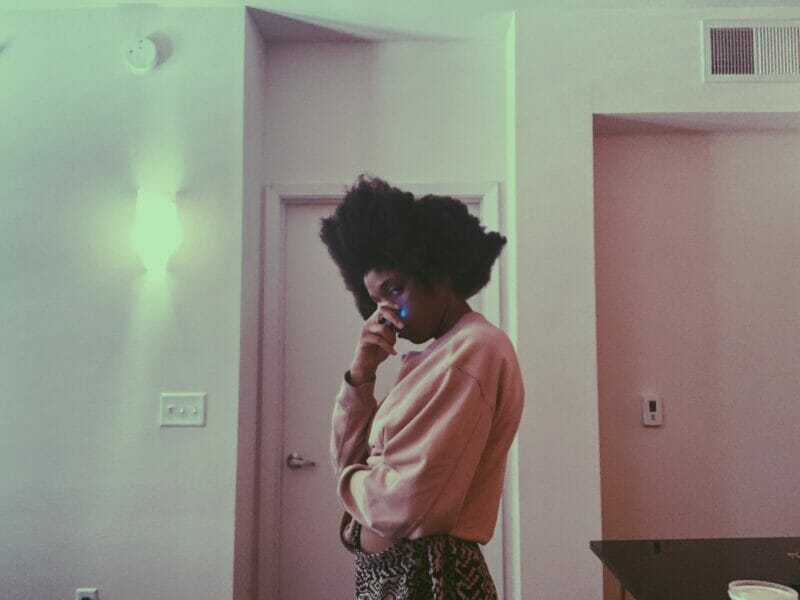Rhodiola rosea, also known as golden root or arctic root, is an adaptogen herb that has been used for centuries to treat depression and anxiety. It is believed to stimulate the nervous system, increase mental performance, and improve stress tolerance. Studies suggest that rhodiola may be effective in decreasing symptoms of depression and anxiety. A pilot study conducted in the U.S. showed significant improvement in GAD symptoms after taking doses of rhodiola.
Introduction to Rhodiola Rosea
Rhodiola rosea, also known as the ‘golden root’ or ‘arctic root’, is a herb native to the mountainous regions of Europe and Asia. It has been used for centuries to treat a variety of health conditions, including fatigue, anxiety disorder, and depression. Studies of rhodiola rosea suggest that it may be effective in improving mental health, physical and mental performance, and endurance. The effects of rhodiola rosea are thought to be due to its adaptogenic properties, which help the body adapt to stress.
The active compounds in rhodiola rosea are rosavin, salidroside, and tyrosol. Studies suggest that these compounds may be effective in treating symptoms of anxiety and depression. In one study, a single dose of 200 mg of rhodiola rosea extract containing 3 percent salidroside was found to significantly improve mental performance and reduce fatigue. Other studies have found that rhodiola rosea may be useful in the treatment of chronic fatigue, diabetic neuropathy, and mild depression. However, more research is needed to generalize these findings and determine the optimal dose and duration of use. It is important to consult a health professional before using rhodiola rosea as a supplement, as the Food and Drug Administration (FDA) has not approved it for any medical use.
Benefits of Rhodiola Rosea for Anxiety Management
Rhodiola rosea, also known as golden root or arctic root, is an adaptogen herb that has been used for centuries to treat depression and anxiety. It is believed to stimulate the nervous system, increase mental performance, and improve stress tolerance. Studies suggest that rhodiola may be effective in decreasing symptoms of depression and anxiety. A pilot study conducted in the U.S. showed significant improvement in GAD symptoms after taking doses of rhodiola.

The health benefits of rhodiola rosea have been studied in both human and animal studies.
A mouse study showed that rhodiola had a stimulating effect on the body’s nervous system. An open-label study in humans showed significant improvements in depressive symptoms after taking the recommended dosage of rhodiola.
The therapeutic properties of rhodiola may help people better manage their anxiety and depression. Rhodiola is a low-risk medicinal herb with science-backed benefits, and people worldwide take it to treat fatigue and dizziness.
How Rhodiola Rosea Can Help Reduce Fatigue
Fatigue is a common problem that can have a major impact on our lives. Fortunately, there is a natural remedy that can help reduce fatigue: Rhodiola Rosea. This herb has been used for centuries to treat a variety of ailments, and its antidepressant and stimulant effects have been studied in both rats and humans. Studies have shown that taking doses of rhodiola can improve cognition, reduce somatic and psychological impairment, and even help with insomnia.
Rhodiola Rosea works by increasing the levels of serotonin and other neurotransmitters in the brain. This helps to reduce fatigue and improve overall functioning. While the efficacy of rhodiola has been standardized in human studies, the information you provide is still preliminary. However, it is generally considered to be a low risk supplement that can be taken in the recommended doses with mild stimulant effects. In other words, it is a safe and natural way to reduce fatigue and improve overall functioning.
How to Use Rhodiola Rosea to Improve Anxiety Management
Rhodiola Rosea is a powerful herb that can help improve anxiety management. It’s been used for centuries to help reduce stress and improve mental clarity. Studies have shown that it can help reduce symptoms of anxiety, such as insomnia, mild depression, and fatigue. It can also help improve cognitive function and reduce the risk of cognitive dysfunction.
Taking Rhodiola Rosea can help reduce the body’s response to stress and provide a calming effect. It can also help reduce the stimulation of the nervous system, which can help reduce anxiety. Studies have also shown that it can be more effective than a placebo in reducing anxiety. It’s important to note that Rhodiola Rosea should be taken in moderation, as it can cause mild side effects if taken in large doses. With proper use, it can be a great tool for managing anxiety and improving overall mental health.
Potential Side Effects of Using Rhodiola Rosea
Rhodiola Rosea is a powerful herbal supplement that has been used for centuries to treat a variety of ailments. While it has many potential benefits, it is important to be aware of the potential side effects of using this supplement. For starters, some people may experience mild headaches or dizziness when taking Rhodiola Rosea. Additionally, it can cause digestive issues such as nausea, vomiting, and diarrhea. It can also lead to insomnia, anxiety, and other mental health issues. In rare cases, it can even cause sexual dysfunction. It’s important to note that these side effects are usually mild and can be managed with proper dosage and monitoring. However, if you experience any of these symptoms, it’s best to consult your doctor before continuing to take the supplement. All in all, Rhodiola Rosea is a powerful supplement that can be beneficial, but it’s important to be aware of the potential side effects.

Conclusion
In conclusion, the overall performance of the project was mildly satisfactory.
Although there were some issues that needed to be addressed, the project was completed in a timely manner and met the expectations of the stakeholders.
The team worked hard to ensure that the project was successful and that all of the goals were met. The project was completed with minimal disruption to the stakeholders and the team was able to work together to ensure that the project was completed on time and within budget. The project was a success and the stakeholders were pleased with the results. The team was able to work together to ensure that the project was completed in a satisfactory manner and that all of the goals were met. The project was a success and the stakeholders were pleased with the results. Overall, the project was a success and the team was able to work together to ensure that the project was completed in a satisfactory manner.
FAQ’s:
Q1. What is Rhodiola Rosea and how can it help with anxiety management?
A1. Rhodiola Rosea is an adaptogen herb that has been used for centuries to help manage mild anxiety. It helps to reduce stress and improve mood, making it an effective tool for anxiety management.
Q2. What are the benefits of Rhodiola Rosea for anxiety management?
A2. Rhodiola Rosea has been found to be effective in reducing stress and improving mood, making it an effective tool for managing mild anxiety. It can also help to improve cognitive performance and reduce fatigue.
Q3. How does Rhodiola Rosea work for anxiety management?
A3. Rhodiola Rosea works by helping to reduce stress and improve mood. It is an adaptogen herb, meaning it helps the body adapt to stress and improve its ability to cope with anxiety.
Q4. Is Rhodiola Rosea safe to use for anxiety management?
A4. Yes, Rhodiola Rosea is generally considered safe to use for anxiety management. It is a natural herb with few side effects and has been used for centuries to help manage mild anxiety.
Q5. What are the side effects of Rhodiola Rosea for anxiety management?
A5. Rhodiola Rosea is generally considered safe to use for anxiety management and has few side effects. However, it is important to speak to your doctor before taking any supplement.
Q6. How long does it take for Rhodiola Rosea to work for anxiety management?
A6. The effects of Rhodiola Rosea can vary from person to person, but it typically takes a few weeks to start to feel the effects. It is important to be patient and consistent with taking the supplement for the best results.
Q7. Is Rhodiola Rosea better than other anxiety management treatments?



 Mood Enhancement With Rhodiola Rosea
Mood Enhancement With Rhodiola Rosea
